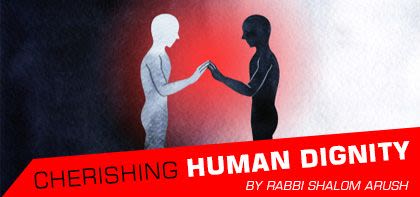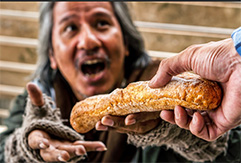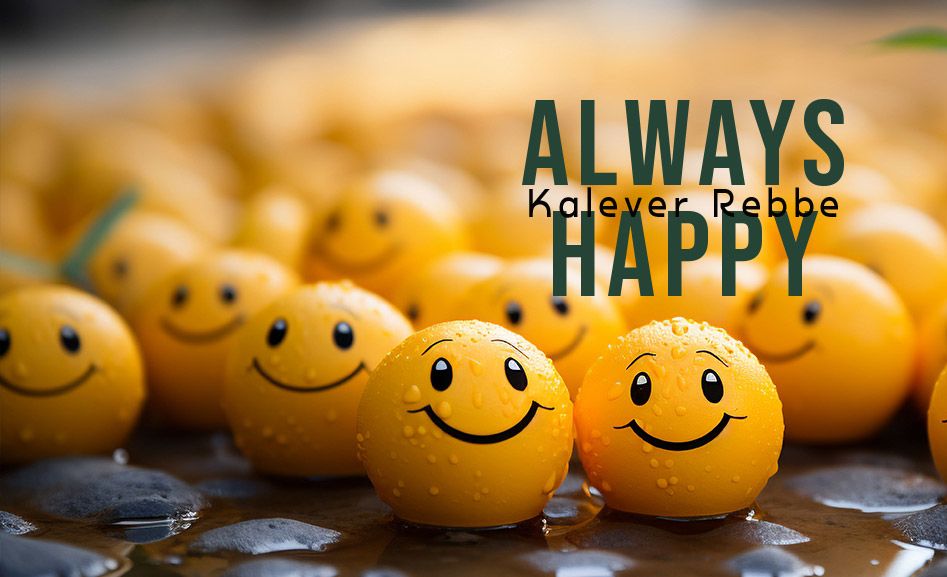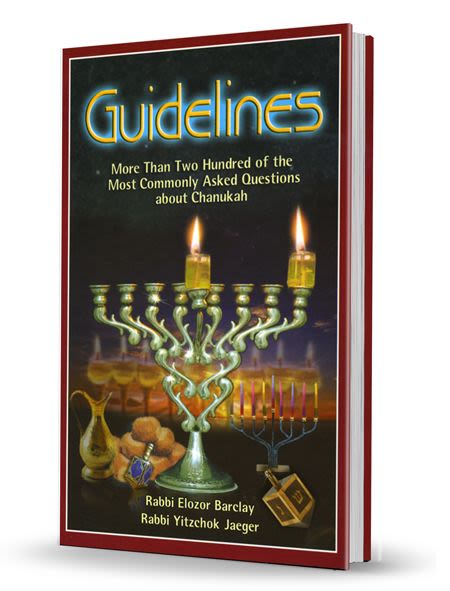
Cherishing Human Dignity
A good person is never an obstruction to others. He thinks about what he does before he does it, making sure that his actions won't bring sorrow…

Respecting other people is the root of everything. People search for the good life; but, to find the good life, one must be a good person. That means being good to other people. People love, respect, trust and bless a good person. The good person’s thoughts, speech and deeds focus on preventing any harm to any other human. The good person cherishes human dignity. He or she is polite, patient, humble and smiling, always producing a good atmosphere wherever they go. When a good person is in a small minyan (prayer quorum), he doesn’t pray at length so that others have to wait for him. He is kind and considerate. He won’t sit in an aisle where he’ll be an obstruction to others. He thinks about what he does before he does it, making sure that his actions won’t bring sorrow to any other human.
When driving a car, the good person doesn’t honk at pedestrians, for that startles them. So what if you’re at a red light that turns green? So what if the car in front of you didn’t take off like a rocket? Why are you honking? Wait another three seconds with patience and don’t upset others with the racket of your car’s horn. Give in to others. Have mercy on them. Don’t huff and puff at someone who sits in your regular seat at the synagogue. Don’t shout at anyone. Make human dignity the highest on your list of priorities. Don’t push anyone else to get closer to the tzaddik’s grave; stand afar and pray.
The general rule, as our sages said, “Be as soft as a reed; when the wind blows, it bends in each direction, for the Torah endures only in a humble person. Why is the Torah compared to water? To tell  you that Torah, like water, flows from a high place to a lower place. As such, the Torah only endures in a person who has a humble spirit” (Taanit 20a).
you that Torah, like water, flows from a high place to a lower place. As such, the Torah only endures in a person who has a humble spirit” (Taanit 20a).
Each time a person honors others, he invokes abundance and blessings for the world. He becomes the catalyst for bringing Divine abundance to the world and he unwittingly atones for any wrongdoing he might have done. Since he brings light to the world, his own darkness disappears.
Our sages said that when others are pleased with a person, the Almighty is pleased with that person; when others are displeased with a person, the Almighty is displeased with that person (Avot 3:10). The extent to which other people are pleased with a person is the critical parameter of that person’s status in the Upper Realm. Everyone must consequently strive to preserve the dignity of other people and to be considerate of their needs, circumstances and feelings. Rebbe Nachman says that every person must regard himself as if he is responsible for the whole world; he therefore must accept responsibility! He should do what he can to rectify the world’s deficiencies. An individual who lives with such awareness surely does whatever he can to help others. He prays for people, is understanding, helpful and considerate of their needs. No wonder everyone is delighted with such a person. He certainly doesn’t harbor bad feelings about anyone and he avoids friction and arguments – not with parents, with fellow siblings, with his spouse and not even with his enemies. His prayers for other people mitigate all stern judgments. His constant quest for peace and love invoke fantastic Divine compassion, even without teshuva. Each of us must make a solemn commitment to ourselves to avoid causing pain or sorrow to any individual on earth.










10/23/2018
Human Dignity
Thank you so much for this amazing article. it is so important. 🙂
10/23/2018
Thank you so much for this amazing article. it is so important. 🙂